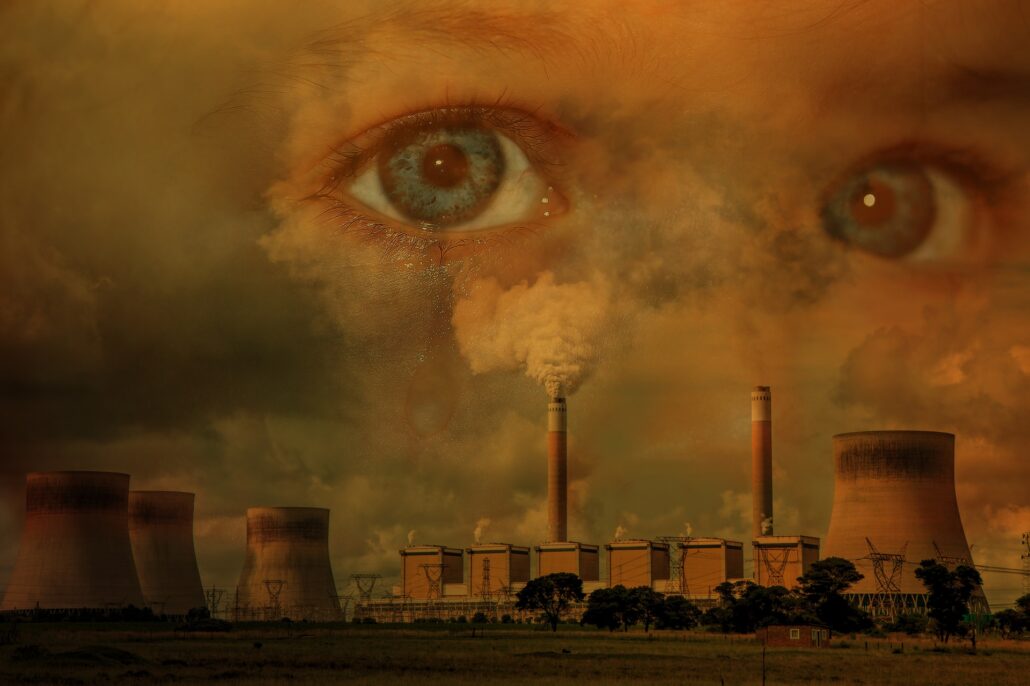16 April 2021
Even though future generations will suffer most from the climate crisis, they cannot participate in today’s political decision-making process. Their interests must therefore be protected in another way and starting a climate court case may be a possible one. The rising number of worldwide climate court cases means that protecting environmental rights through legal avenues is apparently becoming popular [1][2].
“Climate litigation is a broad and still maturing term that refers to the rapidly growing body of lawsuits in which climate change and its impacts are either a contributing or key consideration in legal argumentation and adjudication”.
[3] Ganguly, Setzer & Heyvaert, 2018, p.843.
Around the globe, approximately 1800 climate change cases have been labeled as climate change litigation, mostly as a side issue [4][5]. Strategic climate litigation is less common but receives more attention. It involves cases filed to put pressure on states (“strategic public climate litigation”) or businesses (“strategic private climate litigation”) to reduce, adapt or compensate for the damage caused by climate change [3].
Strategic public climate litigation aims to “influence public policy or policy decisions with climate change implications” [3]. A good example is the Dutch Urgenda case. In 2018, the Dutch Court of Appeal compelled the National Government to do more to reduce greenhouse gas emissions in the Netherlands. The case focused on future generations, and directly relied on the European Convention on Human Rights (ECHR), especially articles no.2 “Right to life” and no.8 “Right to private and family life” [6].
Strategic private climate litigation, instead, aims to “influence corporate behaviour and strategies in relation to climate change” [3]. However, due to its ramified and international corporate organization, multinationals can easily bypass judication for misdeeds.
Generally, business strategies are planned in the powerhouses of the Western world, physical production is outsourced to low-wage countries, and raw materials are extracted from poor areas prone to weak governments and corrupt judges. This complex business strategy raises questions about the responsibility of multinationals – e.g., in terms of human rights and environmental pollution – a debate that has been ongoing since the 1970s [1].
To clarify multinationals responsibility, Ecuador recently proposed a UN Treaty on Transnational Corporations. The proposal has been negotiated since 2015 and, so far, it gained support from a majority of 85 UN member states – including China and Russia. The European Union was reluctant at the start of the negotiations, but “[t]here has been a tipping point over the last two years” in favor of the treaty [7][8].
In the meantime, case law should provide clarity. The verdicts from e.g., the UK Supreme Court and the Dutch Court of Appeal against Royal Dutch Shell in Nigerian oil pollution cases, show that parent companies do have a duty of care over its subsidiaries, and can therefore be held liable for their misdeeds [9][10]. This creates more opportunities to hold multinationals accountable [7]. However, these trials are very time consuming. Prosecutor “Friends of the Earth Netherlands” together with four local plaintiffs had to wait 13 years for justice in the Dutch Shell case [11].

(Author, April 2021).
The recent developments that the environment is becoming more in the realm of law and less in that of politics also caused controversy both regarding the separation of power, and the legitimacy of NGOs taking these legal steps [2].
“[E]nvironmentalist claims in European private law illustrate that classical boundaries to democratically legitimate judicial law-making are being challenged, as these claims operationalise the constitutionalisation of the environment, which increasingly encompasses the interests of people in other nations, future generations and non-human entities.”
[2] Burgers, 2020, p.24.
According to “Friends of the Earth Netherlands”, governments do not dare to confront large multinationals properly [2]. In fact, governments can be so entangled with the vested interests of corporations that democracy can be undermined [12]. That is why James Hansen – seen as the father of climate science – concludes that “the litigate-to-mitigate campaign is needed alongside political mobilisation because judges are less likely than politicians to be in the pocket of oil, coal and gas companies” [13]. However, they should not overstep their power but respect the separation of powers.
Bibliography
[1] Luttikihuis, P. (2020, 30 November). ‘Klimaat is steeds meer mensenrechtenzaak’. Retrieved 12 April 2021, from https://www.nrc.nl/nieuws/2020/11/30/klimaat-is-steeds-meer-mensenrechtenzaak-a4022056
[2] Burgers, L.E. (2020). Justitia, the People’s Power and Mother Earth: Democratic legitimacy of judicial law-making in European private law cases on climate change. Downloaded 12 April 2021, from https://pure.uva.nl/ws/files/52346650/Chapter_1.pdf
[3] Ganguly, G., Setzer, J., & Heyvaert, V. (2018). If at first you don’t succeed: Suing corporations for climate change. Oxford Journal of Legal Studies, 38(4), 841-868.
[4] Grantham Research Institute on Climate Change and the Environment (2021). Litigation Cases. Retrieved 12 April 2021, from https://climate-laws.org/litigation_cases
[5] Sabin Center for Climate Change Law (2021). U.S. Climate Change Litigation. Retrieved 12 April 2021, from http://climatecasechart.com/us-climate-change-litigation/
[6] European Court of Human Rights (2010). European Convention on Human Rights. Downloaded 13 April 2021, from https://www.echr.coe.int/documents/convention_eng.pdf
[7] De Bruyne, M. (2021, 19 February). De multinational ontkomt niet aan zijn zorgplicht. Retrieved 13 April 2021, from https://www.nrc.nl/nieuws/2021/02/19/de-multinational-ontkomt-niet-aan-zijn-zorgplicht-a4032530
[8] Ernste, B. (2019, 14 November). Om multinationals in toom te houden zijn strengere regels nodig, maar de EU werkt tegen. Retrieved 15 April 2021, from https://www.vn.nl/multinationals-in-toom-eu/
[9] District Court The Hague (Rechtbank Den Haag) (2015, 24 June). Stichting Urgenda/Staat der Nederlanden ECLI:NL:RBDHA:2015:7145. Retrieved 12 April 2021, from https://uitspraken.rechtspraak.nl/inziendocument?id=ECLI:NL:RBDHA:2015:7145
[10] De Bruyne, M. (2021, 12 February). Ook nederlaag voor Shell in Britse rechtszaak vervuiling Nigeria. Retrieved 13 April 2021, from https://www.nrc.nl/nieuws/2021/02/12/ook-nederlaag-voor-shell-in-britse-rechtszaak-a4031600
[11] Milieudefensie. (2021, 4 February). 13 jaar wachten op gerechtigheid is veel te lang. Retrieved 15 April 2021, from https://milieudefensie.nl/actueel/13-jaar-lang-wachten-op-gerechtigheid-is-veel-te-lang
[12] Hoekstra, E. (2021, 5 March). The Interest of Fossil Fuel Corporations and Agribusiness Enterprises in Climate Policies. Retrieved 15 April 2021, from https://greenmarked.it/fossilfuels-and-agribusiness-in-climatepolicies/
[13] Watts, J. (2017, 17 November). We should be on the offensive’ – James Hansen calls for wave of climate lawsuits. Retrieved 13 April 2021, from https://www.theguardian.com/environment/2017/nov/17/we-should-be-on-the-offensive-james-hansen-calls-for-wave-of-climate-lawsuits.




